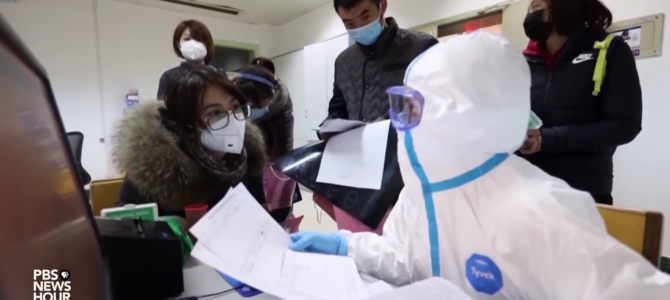The World Health Organization (WHO) declared that the coronavirus, originating in Wuhan, China, is a public health emergency of international concern on Thursday, indicating a pivot from their prior stance.
Last week, the organization explicitly refrained from making such a declaration, but recent numbers revealing the breadth of the outbreak, including one confirmed human-to-human transmission case in the United States, has compelled WHO to change course.
Thus far, 8,000 cases of infection have been reported globally, and almost all of them have been in mainland China. In total, 38 people have died from the disease. In response to reduced demands for travel to China, United Airlines and American Airlines suspended some flights to China and issued waivers for those seeking to cancel or postpone their flights. However, given WHO’s latest announcement, it may be time for the Trump administration to impose a travel ban between the United States and China.
According to the Wall Street Journal, “A public health emergency of international concern is a situation that is serious, unusual or unexpected with international implications that potentially requires a coordinated, international response.”
While such declarations do not carry the force of law, they do notify member states within the United Nations that the situation is serious and furnish a reasonable justification, should governments opt to close their borders, cancel flights, or introduce more rigorous screening measures.
Within China alone, every province and region has reported a confirmed case of the virus, though fifteen other countries have reported cases of it. The first reported case of human-to-human transmission in the United States is the husband of a woman who traveled to Wuhan, China and had tested positive last week for the virus.
The Trump administration is reportedly considering a travel ban between the United States and China in order to contain the spread of the virus, according to The Hill. In the meantime, the Center for Disease Control and Prevention (CDC) expanded their travel advisories to apply to the entirety of China.
While a travel ban would seem to be the most practical response to containing the virus, Forbes’ contributor Will Horton points out the difficulties of stopping travelers who pass through other cities while traveling between China and the United States. Horton writes,
Passengers between China and the U.S. transit through other locations, notably South Korea, Japan and Hong Kong. Banning only China flights would leave other travel options open while a larger ban covering multiple jurisdictions would be complex and politically sensitive as the virus remains largely isolated in Mainland China with few cases in North America.
However, it is hard to see how a travel ban vis-à-vis China wouldn’t help to mitigate potential contact with the disease, even if we couldn’t necessarily control every possible means of reaching the United States.
The biggest criticism of travel bans is that they inhibit vital supplies from reaching the region, assistance that may ultimately help to reduce the spread of the disease globally. But this critique could easily be addressed by creating a robust exception for aid workers and those carrying supplies to the region. Again, while it doesn’t address the totality of the issue, a travel ban would heartily discourage unnecessary travel that isn’t directly related to helping those in need.
Amidst debates over travel bans, it is troubling that in the course of deliberations we are relying upon the Chinese government to accurately report the number of those who are infected, particularly when the incentive to do so is severely lopsided. With the exception of seeking foreign aid, China has almost every motivation to report reduced values in an effort to avoid accusations of incompetency or failure, much in the same way the Soviet Union often hid crises from the international stage in order to avoid undermining the communist project publicly.
When it comes to considering a response to WHO’s latest announcement, the United States should exercise excessive caution, rather than full-scale panic. It’s worth making a distinction between the two because those opposed to more rigorous action often conflate the two in order to summarily dismiss them both. In this case, a travel ban may very well be in order, and given WHO’s latest announcement, the administration may see a need for it sooner rather than later.









